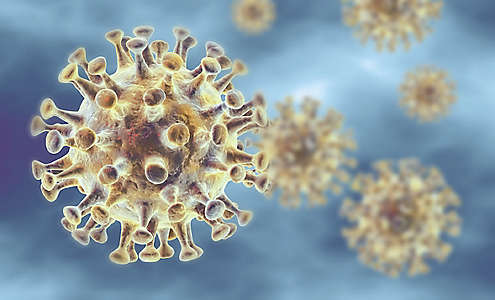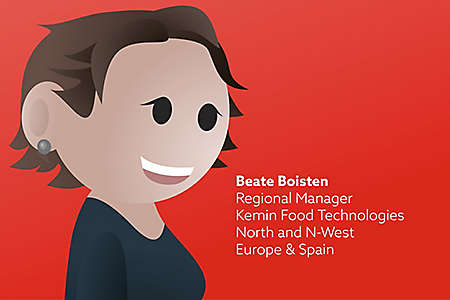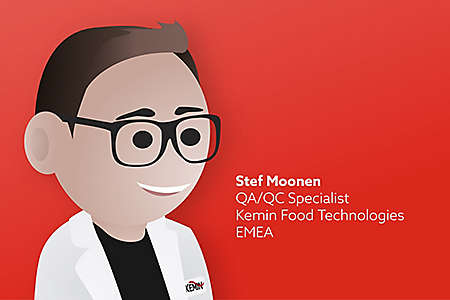Interview with Anja Verbiest (CLS - QA Manager) and Erwin Weerts (Ops & RA Manager) about certification and international standards.
ISO 9001, FSSC 22000, organic (bio) certification, RSPO, Kosher & Halal certification... Think of a standard on quality and food safety, and Kemin Food Technologies as well as Kemin Animal Nutrition and Health have it on their records. Standardization started about ten years ago at the request of our customers. Today, quality and safety procedures are embedded in our way of working, resulting in better and safer products.
Which standards are important to Kemin and why?
Anja: FSSC 22000 is a very important international standard in the field of food safety. It’s globally endorsed by the largest food companies. Our customers and prospects expect us to work in accordance with FSSC 22000. The same goes for quality. Kemin has an ISO 9001 certification.
Erwin: We want to reach as many people as possible with our ingredients. That's why we are also Halal and Kosher certified. Moreover, consumers are more demanding than ever when they go to the supermarket. They want to know where their food comes from and how sustainable it is. Therefore, the pressure on food manufacturers increases. We must take that into account. Our natural rosemary extract is a sustainably grown label-friendly alternative to E-numbers. Kemin uses a sustainable, agronomic growing approach that is certified “Sustainably Grown” by SCS Global Services.
We are also RSPO (Round Table on Sustainable Palm Oil) certified to demonstrate that we source palm oil derivatives in accordance with the rules set by the RSPO. (EN-HANCE), (FORTIUM-T)
Rosemary extract is one of your most important products. Where does your rosemary come from?
Erwin: We have our own plantations in the US, where our headquarters is located. We work together with local farmers. This partnership enables us to monitor the entire supply chain, from breeding, plant selection, growing, harvesting and extraction to quality monitoring. The vertically integrated supply chain allows us to ensure that every batch of product is consistent. Our customers can expect the same efficacy every time they purchase our plant-based ingredients.
Do you have environmental certificates?
Anja: Not specifically for the purpose of environment, but the other standards contain ecological parameters. At our production site in Herentals, for example, we make a great deal of effort to recycle and reduce waste. For our plantations, we are always looking at how we can produce in a more sustainable way. Our production process is less water-intensive than conventional crops.
Do you feel an increasing pressure from customers to comply with certain standards or certificates?
Anja: About ten years ago, more and more companies started asking for certificates and standards. Lately they also have their own questionnaires about safety, quality or sustainability. Most of the time, we are covered by our certificates.
FSSC22000 is a GFSI (Global Food Safety Initiative) approved certificate. GFSI brings together key stakeholders of the food industry who drive continuous improvement in food safety management systems around the world.
What are the benefits of certification in your day-to-day business?
Anja: Standards bring structure. Thanks to the procedures, it’s much easier to monitor everything properly. Everyone knows what to do. Everything is described. Mistakes or complaints can be tackled more easily and quickly. Standardization once started as an assignment, but now it has become a way of working that ensures that we can offer our customers better solutions.





